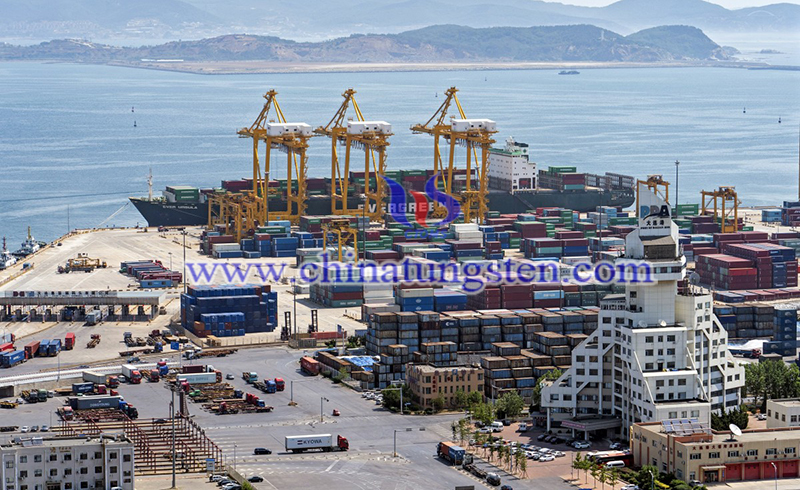China to Maintain Tungsten, Molybdenum and Rare Earths Tariffs in 2021
- Details
- Category: Tungsten's News
- Published on Tuesday, 26 January 2021 22:19
The Chinese government will maintain its export duties on some nonferrous metals such as tungsten, molybdenum and rare earths and most ferro-alloys for 2021. China will keep a 20% export tariff on ferro-alloys including ferro-manganese, silicon-manganese, ferro-silicon and pig iron. The duty on ferro-chrome will be unchanged at 15%.
These tariffs are designed to curb the production of energy-sensitive and polluting products. As the domestic market is more profitable, and the appreciation of the renminbi against the US dollar squeezes the profit margins of their overseas transportation, many Chinese ferroalloy export companies are less concerned about the export policy this year. The yuan rose to 6.536 today against the dollar, up sharply from 6.963 at the start of this year.

China cancelled its export tariffs on manganese, tungsten, molybdenum and rare earths in 2015 in response to a WTO ruling that its export restrictions breached the organization's rules.
In December 2018, Beijing also removed silicon chromium, iron titanium, silicon iron titanium, ferro-niobium and ferrovanadium with the highest vanadium content of 75% from the 2019 export tariff list, while it reduced their duties to 10% in 2018 from 15% in 2017.
China will also keep a 30% duty on zinc and lead concentrates in 2021, along with a 20% duty on concentrates of tin, antimony and tungsten. In December 2018, China cancelled the 10% duty on concentrates of silver, uranium, zirconium and titanium. Beijing will continue to impose a 15% duty on unwrought nickel, aluminium, zinc and copper in 2021.
The antimony metal tax remains unchanged at 5%. Since September 2019, as Beijing has taken measures to curb unauthorized trade, the country's legal antimony exports have returned to normal levels. From January to October, China exported 7,250 tons of antimony metal, a decrease of 28.41% from 10,127 tons in the same period last year. The reason is that Covid-19 has weakened demand outside China (especially Europe and the United States).
China will maintain a 2% import tariff on a number of battery materials including cobalt tetroxide, cobalt hydroxide, carbonate and oxide, nickel sulphate, cobalt sulphate, lithium carbonate and lithium cobalt oxide, the ministry of finance said. Duties on lithium and calcium metals will be unchanged at 1%. China will continue to impose a 1% import duty on some ferro-alloys such as ferro-molybdenum, ferro-tungsten and ferro-chrome with carbon content below 4%.
Imports of rare earths metals and oxides will continue to be tax-free next year. From January to October this year, China imported 58,381 tons of rare earth metal ore from the United States, an increase of 55% from 37,637 tons in the same period last year. Almost all imported rare earth metal ores are absorbed by Shenghe Resources, a Chinese rare earth separation producer. After the company closed due to flooding in mid-August, it restarted operations at its Leshan separation plant in late October.
China will also impose a 1% import tax on unprocessed antimony, bismuth, niobium, zinc and nickel metals. Tariffs on spodumene, nickel-iron alloys, ferro-niobium alloys, vanadium-nitrogen alloys, ferrochrome and copper metals with a carbon content of more than 4% will remain at zero.
- Tungsten Manufacturer & Supplier, Chinatungsten Online: www.chinatungsten.com
- Tungsten News & Prices of China Tungsten Industry Association: www.ctia.com.cn
- Molybdenum News & Price: news.molybdenum.com.cn
- Tel.: 86 592 5129696; Fax: 86 592 5129797; Email: sales@chinatungsten.com



 sales@chinatungsten.com
sales@chinatungsten.com